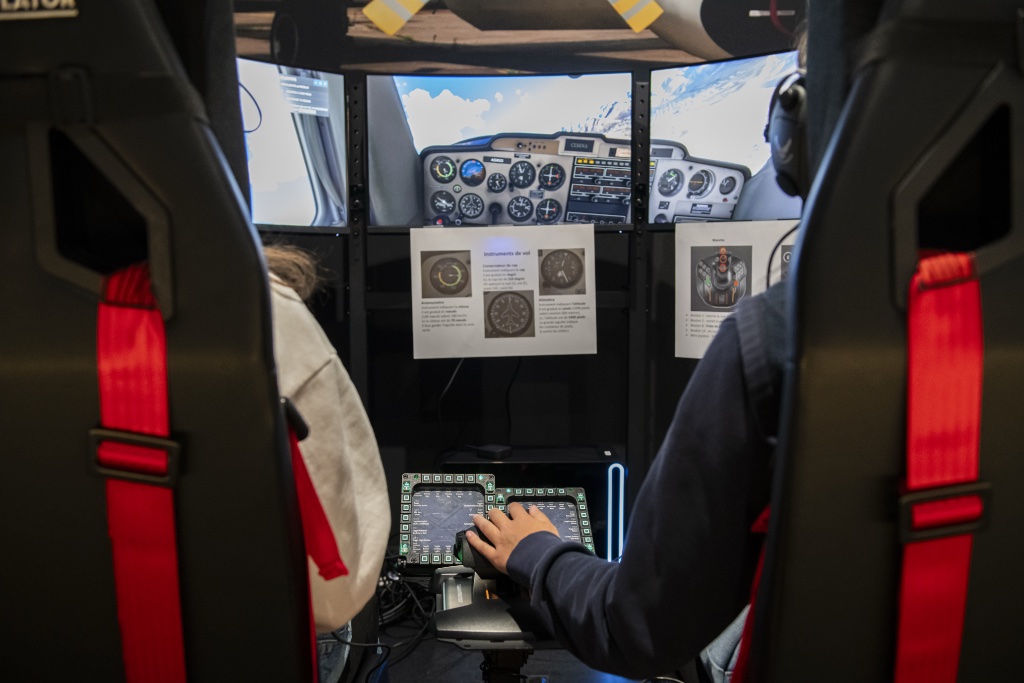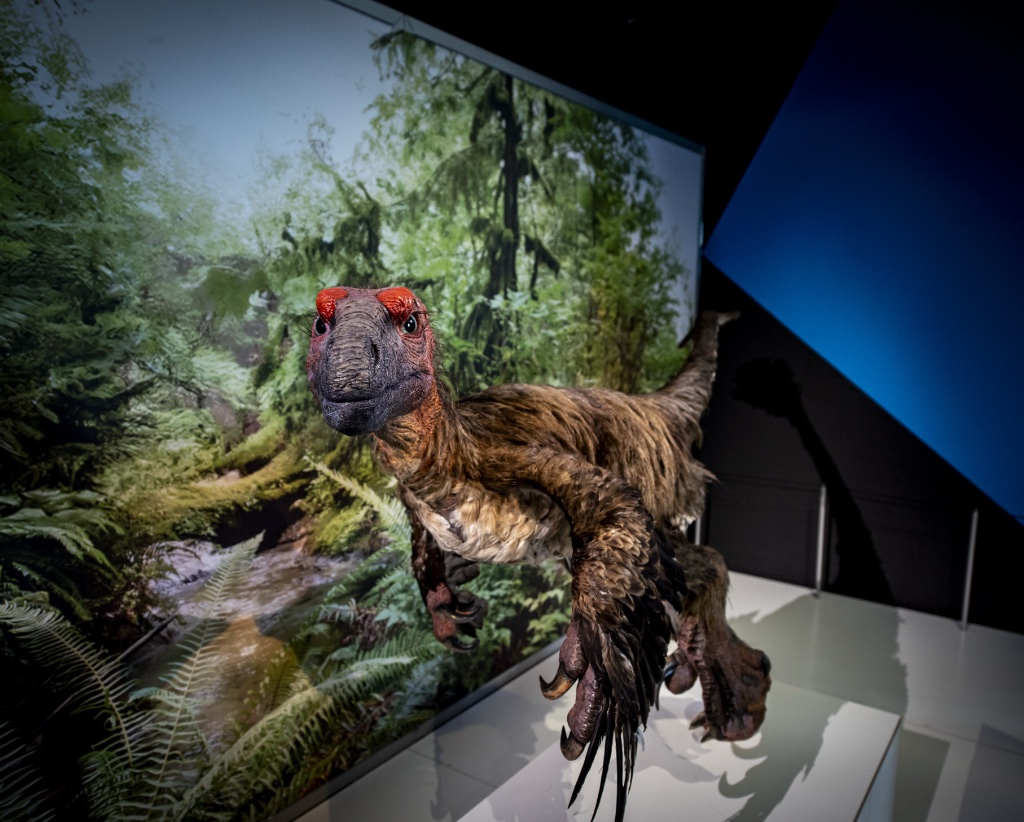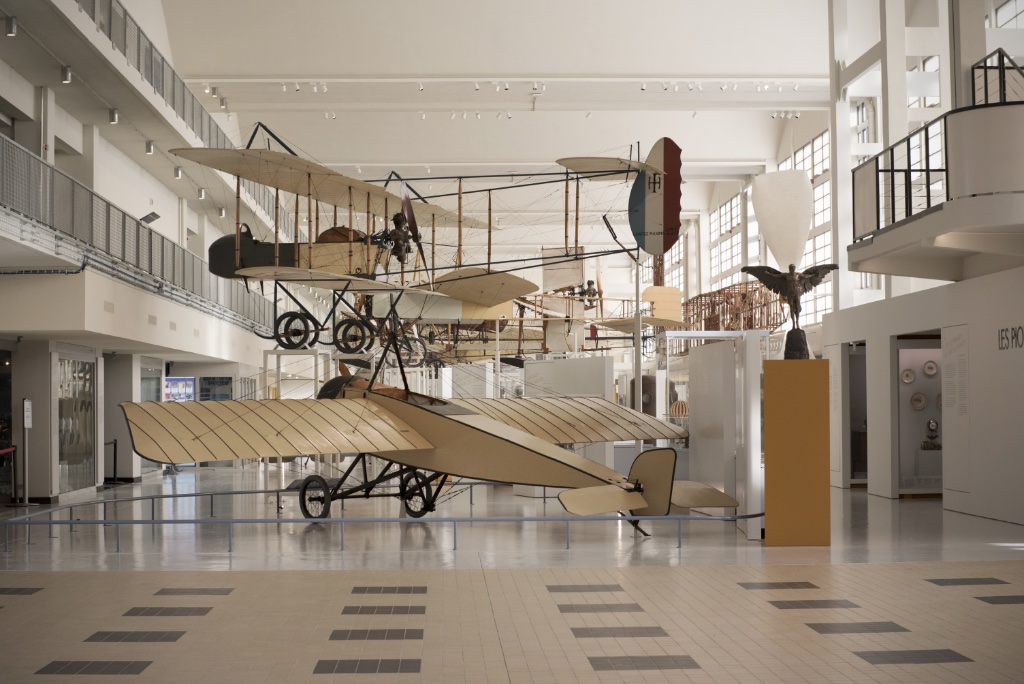
I have a sad announcement to make: I now know that there is no hope for me ever becoming an airline pilot, despite expert training at the Museum of Air and Space in Le Bourget Airport, just outside of Paris, which recently invited a group of journalists to test its new flight simulator, “Simupilote.”

My copilot and I were absolutely hopeless when it came to making the short flight from Le Bourget Airport, where the museum is located, to Charles de Gaulle. We crashed over and over again, although I must say, she showed more talent than I did when she took over the controls. Thankfully, there was no danger, except perhaps that we would fall out of our seats from laughing so hard. Luckily, we had strapped ourselves in.

The new program will certainly be easier to manipulate for anyone who has experience with computer games. For myself, I found that the museum itself was much more my speed – a slow walk. Set in the airport’s unused hangars (Le Bourget is now used mostly for private jets, which explains why some top contemporary art galleries, notably Gagosian, have opened branches nearby so that traveling billionaires can easily pay a quick visit before flying off to their next destination), the immense museum, entered through a handsome Art Deco building, covers the entire history of aviation and space travel, with plenty of fascinating exhibits and planes galore. Visitors can board and snoop around inside a few of them, including a Boeing 747 and two Concordes, and admire the flimsy contraptions that represent the earliest attempts at flight, a couple of Arianespace rockets and many fighter planes.

At the moment, it is also holding a temporary exhibition that I found especially interesting, “Flight,” which compares flying creatures to flying machines whose aerodynamics resemble those of the former or were even inspired by them. For example, we learn that, like owls, which can fly without making a sound, the better to sneak up on and capture their prey, the nEUROn stealth drone is nearly invisible to enemy radar, the better to surprise its target. Drones can also hover, like helicopters and their counterpart in the animal world, hummingbirds, as well as many insects.
Fossil specimens on show include a flying dinosaur (Rhamphorhynchus), a prehistoric dragonfly (Meganeura) and the earliest bird (Archaeopteryx), with videos on hand to demonstrate their likely appearance and how they flew.

Needless to say, this is a museum that children love, but both kids and adults will enjoy the amazing collection of flying machines, supplemented with explanatory videos and interactive exhibits that make learning about aerodynamics fun.
If you book a session on the Simupilote during your visit, I wish you better luck than I had. Bon vol!
See our list of Current & Upcoming Exhibitions to find out what else is happening in the Paris art world.
Favorite